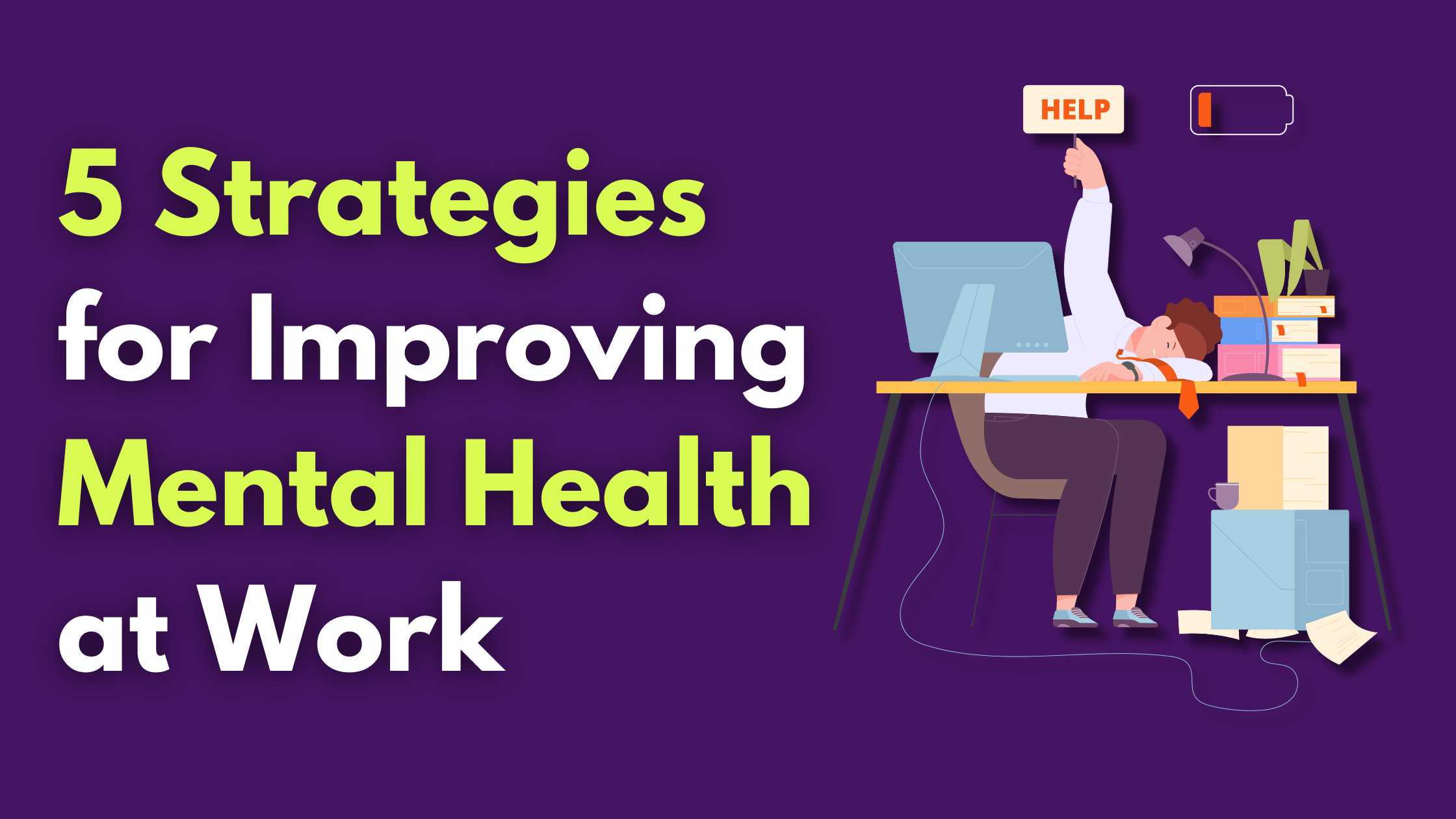
In today’s fast-paced and demanding world of work, maintaining optimal mental health is paramount to overall well-being and productivity. The workplace is often a source of stress, anxiety, and burnout, but employers and employees alike have an opportunity to create a supportive environment that prioritizes mental health.
This essay examines his five effective strategies for improving workplace mental health and promoting a culture of positivity, resilience, and fulfilment.
Table of Contents
1. Promote open communication and a collaborative culture
Effective communication is the foundation of a healthy workplace culture. Promoting open dialogue about mental health issues reduces stigma, fosters empathy, and empowers employees to seek support when they need it.
Employers can implement policies that prioritize mental health, including: For example, offer confidential counselling services, hold mental health awareness workshops, and establish support groups where employees can share experiences and resources.
Additionally, fostering a culture of appreciation and recognition helps employees feel valued and supported, increasing their sense of belonging and overall well-being.
2. Promoting initiatives for work-life balance
A healthy work-life balance is important to prevent burnout and maintain mental health. Employers can promote work-life balance by offering flexible working arrangements, such as: B. Telework options, flexible schedules, and paid time off for personal health activities.
Encouraging employees to take regular breaks, step away from work at the end of the day, and prioritize self-care activities can prevent stress and fatigue, ultimately increasing job satisfaction and productivity. It leads to By valuing employees’ time and personal lives, companies demonstrate a commitment to holistic health and create a positive work environment that is conducive to mental health.
3. Provide resources to manage stress and build resilience
Providing employees with tools and resources to manage stress and build resilience is critical to promoting mental health at work. Employers can offer stress management workshops, mindfulness training, and access to mental health apps and online resources.
Encouraging regular physical activity, encouraging healthy eating habits, and providing relaxation options such as meditation or yoga classes can contribute to overall health and stress reduction. By investing in employee development and resilience-building initiatives, companies enable employees to effectively overcome challenges and thrive in challenging work environments.
4. Promote a positive and supportive work environment
A positive work environment promotes employee mental health and engagement. Employers can encourage positivity by fostering a culture of appreciation, cooperation and mutual respect. Recognizing employee contributions, celebrating successes, and fostering camaraderie through team-building activities strengthens social bonds and creates a sense of belonging.
Additionally, fostering a collaborative leadership style that emphasizes empathy, transparency, and inclusion strengthens trust and psychological safety within your organization. By creating a positive and supportive work environment, employers promote resilience, reduce stress, and promote mental health in their employees.
5. Promote self-care and self-development
Encouraging employees to prioritize self-care and personal development is important to maintaining mental health and fulfillment at work. Employers can support self-care efforts by providing access to resources such as employee assistance programs, mental health days, and gym membership subsidies.
Promoting continuous learning and skill development through training programs, conferences, and mentoring opportunities promotes personal growth and professional fulfilment. By investing in the holistic development of employees, companies demonstrate a commitment to personal well-being and create a culture that values self-care, growth, and work-life balance.
Also Read: Top Wellness Trends You Should Follow in 2025
Conclusion
In summary, prioritizing mental health in the workplace is important to fostering a culture of positivity, resilience and productivity.
By implementing strategies such as promoting open communication, supporting work-life balance, providing stress management resources, fostering a positive work environment, and encouraging self-care and personal development, employers can help employees feel comfortable. You can create an environment where people feel valued, supported, and empowered.
By investing in mental health initiatives, companies not only increase employee happiness and satisfaction, but also increase productivity, creativity, and overall company success. Employers and employees can work together to create workplaces that prioritize mental health, resulting in happier, healthier and more fulfilling work experiences for everyone.




